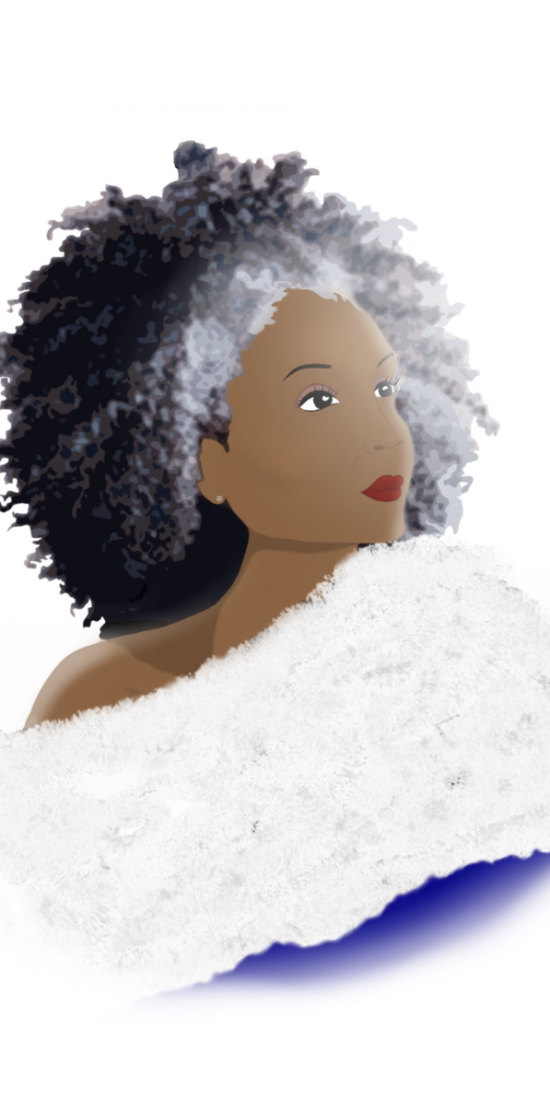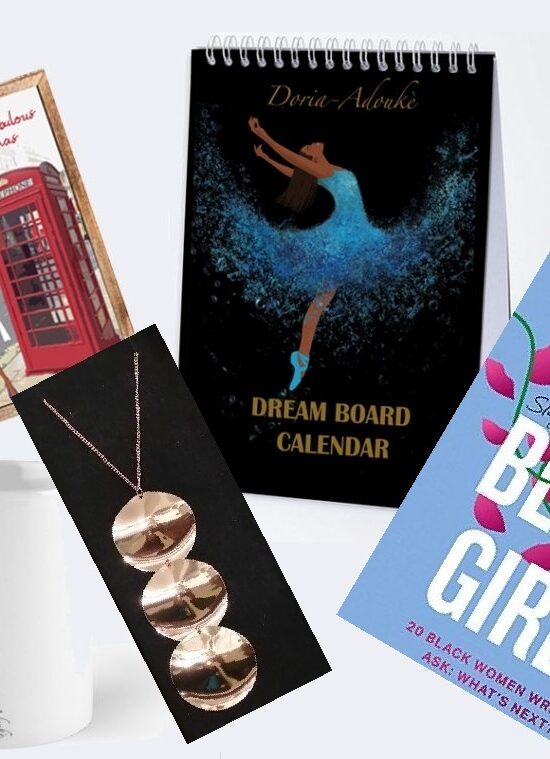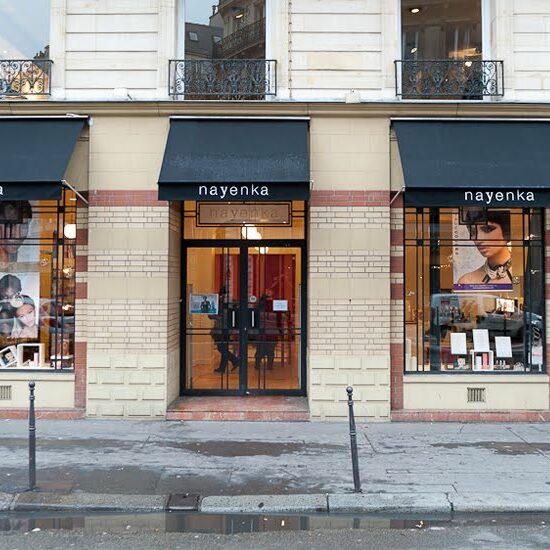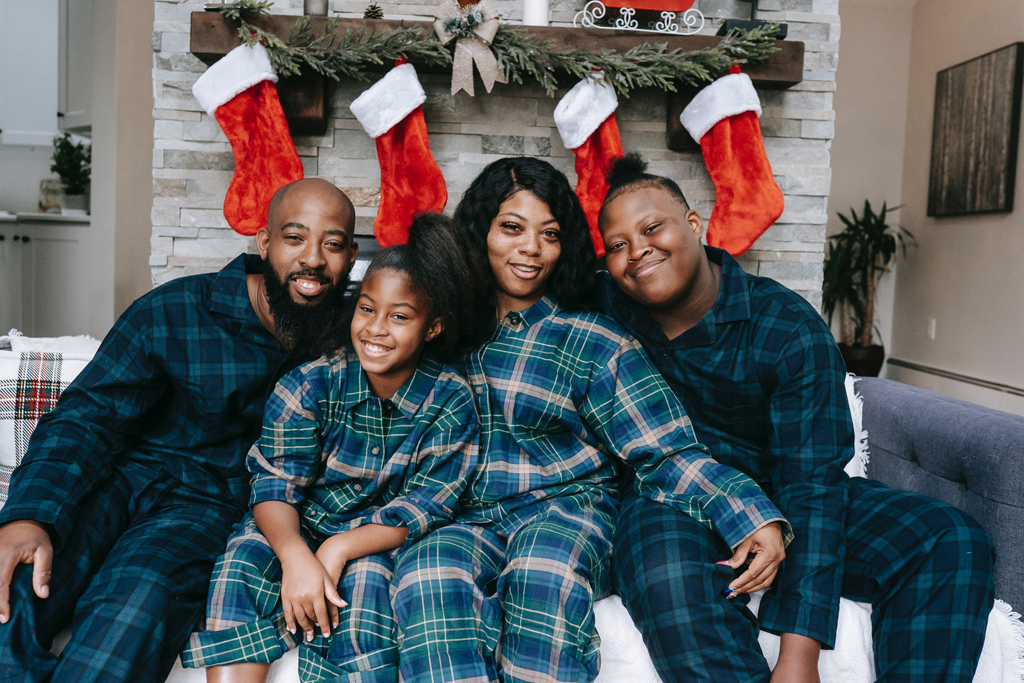
African American Christmas and Kwanzaa History and Tradition
Christmas is a well-known Christian tradition that remembers the birth of Jesus. In countries like the USA and UK, the majority of people celebrate this holiday whether Christian or not. African Americans and Black Britons typically celebrate Christmas. It is an important part of the year and is deeply rooted in the homes of many black people. Children grow up with Christmas, just as they and their parents and grandparents did. Black Santa is a more and more frequent sight and aligns with a positive change in culture. Christmas was first recorded as a celebration in 336 A.D. in Rome under the reign of Constantine. However, many of the well-known traditions are far more recent in origin such as Kwanzaa which is rooted in the African American Christmas tradition.
African American Christmas Traditions
While celebrating St Nicholas is an old tradition, Santa in his red outfit only appeared in the 1870s. Children wait with bated breath on Christmas Eve for their African American Santa Claus to bring some much-wanted gifts. Beautiful gifts depicting black people and products produced and sold by black businesses are growing, developing traditions of gift-giving. Supporting black businesses over the Christmas period can make a huge impact on their success. Where an African American Christmas decoration may adorn a Christmas tree this year, the tradition of trees began in Germany. They only spread with Queen Victoria of England in the mid-1800s as her husband Prince Albert was German.
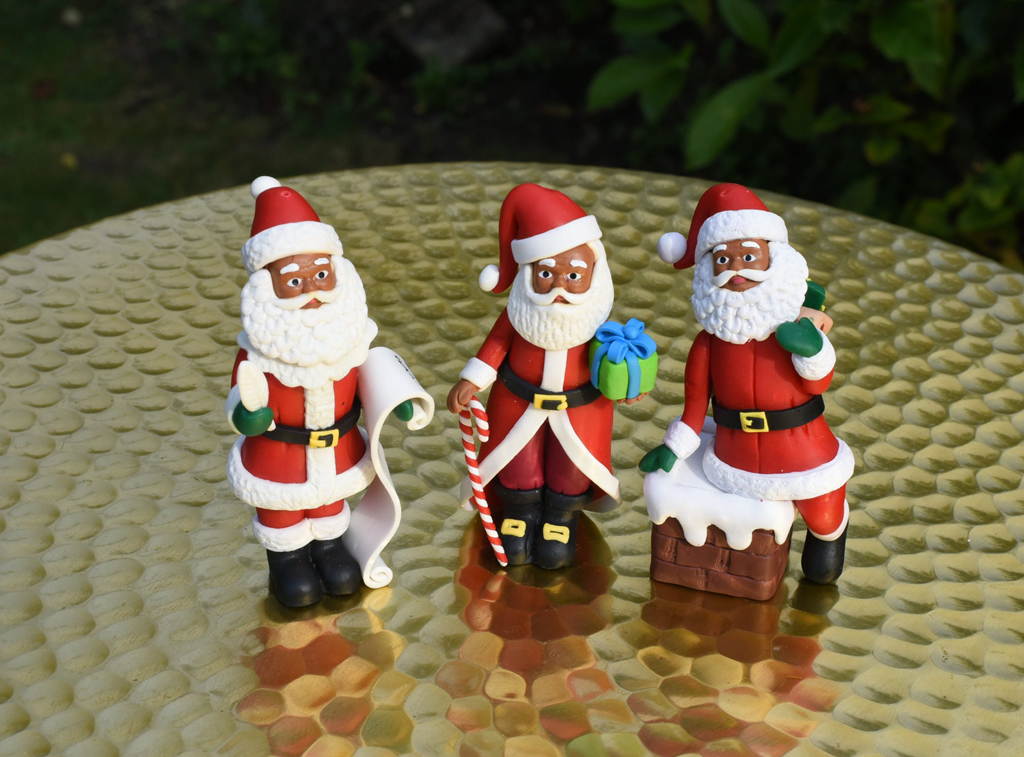
African American Christmas Decoration
The Christmas ornament was added initially as lights and then with paper decorations in China and Japan. The first Christmas card was sent in 1843. Sending a note to a loved one with an African American Christmas card is still as treasured today. For many, these are important traditions, and they are all part of the big day. Trees and decorations help to make homes ready for the Christmas day celebrations. Cards and gifts are used as a way to show friends, family and colleagues that they are valued. These are some of the main traditions people follow as part of the overall celebrations.
African American Christmas Food
For Christmas, the opportunity to have some delicious food and drink is important too. Turkey is popular for Christmas Day as are cakes such as mince pies full of rich fruit and spices. These are aspects that are all part of the Christmas celebration known today. Yet as Christmas begins to insert itself into every last moment of December, what about something black specific? While African American Christmas holidays are an important part of the celebrations, they do not end when 25th December comes. For black people Christmas is just the start of a festive story and history that is gaining traction.
Kwanzaa History and Traditions
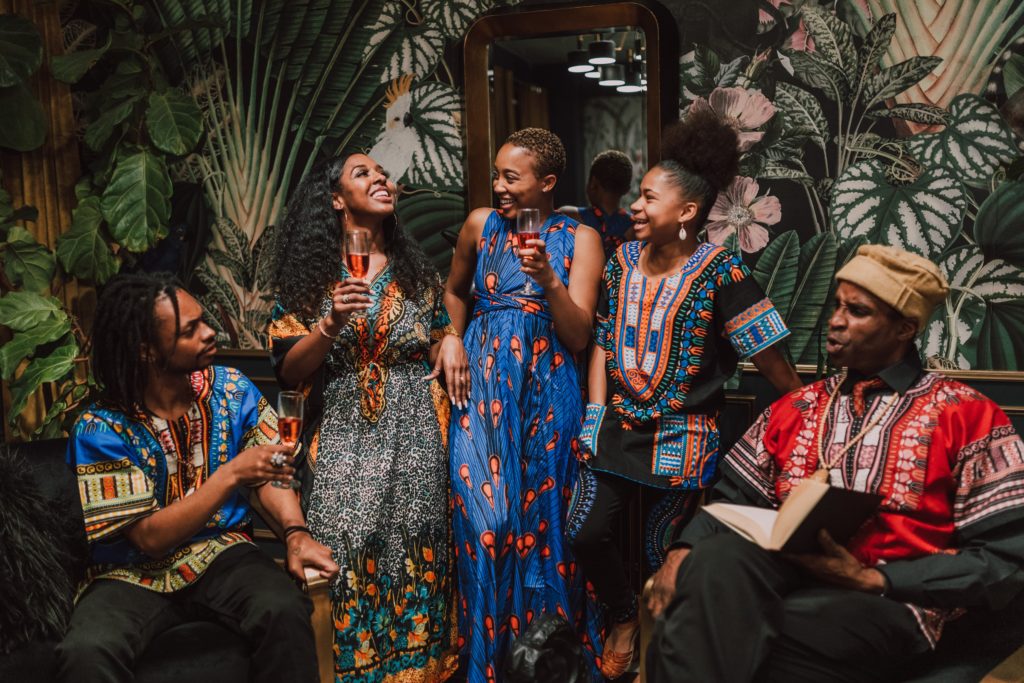
Kwanzaa is an African American Christmas tradition that began in the USA in the 1960s. It was started by the civil rights leader Maulana Karenga in 1966. The idea was for black people to unify in coming together and celebrating their history. The focus would then be on values to support their development. However, just like Christmas décor, its influence moves from place to place and it is becoming popular with Black Britons too.
It starts immediately after Christmas and continues until the 1st January.
The main decoration is a kinara, a candleholder for seven candles. Three red candles sit to the left, three green to the right and there is a central black candle which is lit first. A candle is lit each day alternating between red and green, which directly link to the seven principles or Nguzo Saba.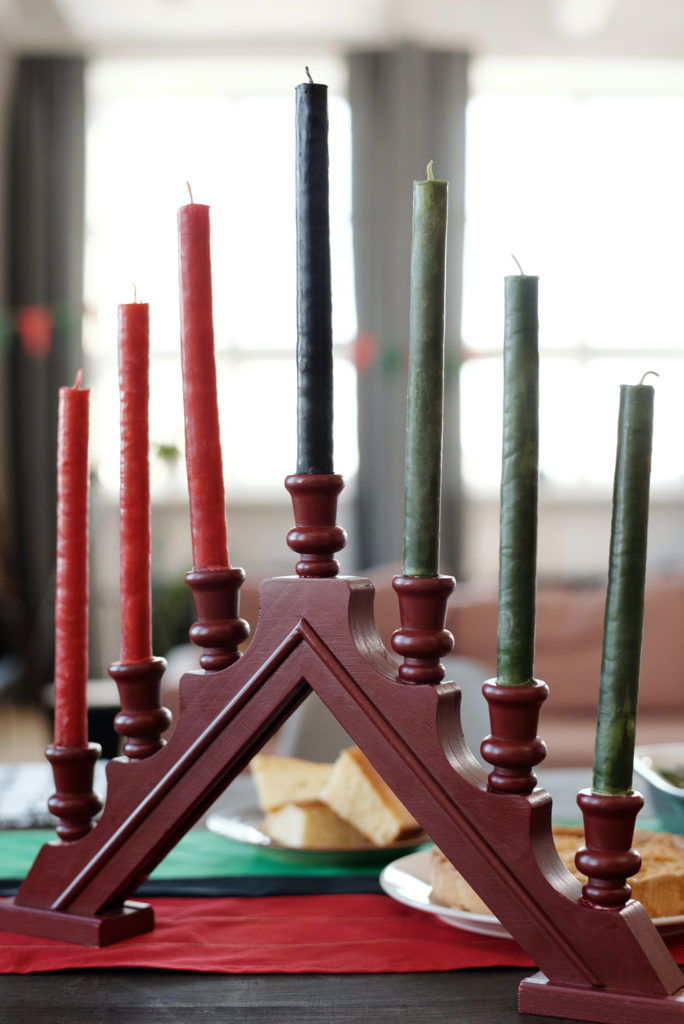
The kinara and the seven candles are two of the seven symbols used during Kwanzaa. The other symbols are a shared unity cup called Kikombe cha Umoja to represent the family and community. All drink from it and a little is poured as a remembrance to past ancestors. There is Mazao or shared crops and the Muhindi is an ear of corn for each child in the family, representing the future. Finally, the Zawadi are the gifts for children. These usually have an educational basis or remind them of their African heritage.
Black, green and red which represent the Pan-African movement, it is a symbol of unity of the African-descent around the world. Black is for the people, red is for the blood and green is for the land of Africa.
The seven principles are:
– Umoja (unity)
– Kujichagulia (self-determination and responsibility)
– Ujima (collective work and responsibility)
– Ujamaa (cooperative economics)
– Nia (purpose in remembering and restoring black culture, customs and history)
– Kuumba (creativity)
– Imani (faith)
All of these principles are to be developed throughout the year to improve black communities. Kwanzaa is the chance for African Americans and Black Britons to celebrate their own rich history and culture. By choosing a period after Christmas, this can be linked to a joyful and festive time. However, it can also be distinct and separate, as its own seven-day festival.
Kwanzaa is fully rooted in African American history, culture and tradition. Each principle is in place to honour traditions and to develop black communities with unity. Each symbol has roots in a strong heritage that must not be forgotten. Kwanzaa was created in response to a need in black communities. It borrows from the harvest or first fruit festivals that are important celebrations across Africa. It focuses on giving thanks and honouring the ancestors. Kwanzaa also develops the good things in the lives of individuals and communities. It encourages people to build each other up. It is a positive event in the calendars of black people who are not in Africa and are likely less immersed in their culture and history.
Kwanzaa is an opportunity to celebrate individual identity and to acknowledge the past in an important celebration. No other holidays focus in the same way on black people and it is therefore an important event that impacts throughout the year. Each individual can find the space to acknowledge and honour their own past. The Kwanzaa celebrations give people a focus to look forward to their own present and future. In this way, Christmas and Kwanzaa can both be fully enjoyed by the black community as traditions and celebrations to get fully involved in and enjoy.
If you’re looking for stunning gifts for both events, then support local black business. Our exceptional gift guide is full of ideas to make every holiday bright.
About Doria Adoukè
We are dedicated to uplifting and representing the beauty of the Black community through our unique products. Explore our collection of African American greeting cards, art prints, and black women’s books designed to celebrate Black women and provide representation that speaks to you.



